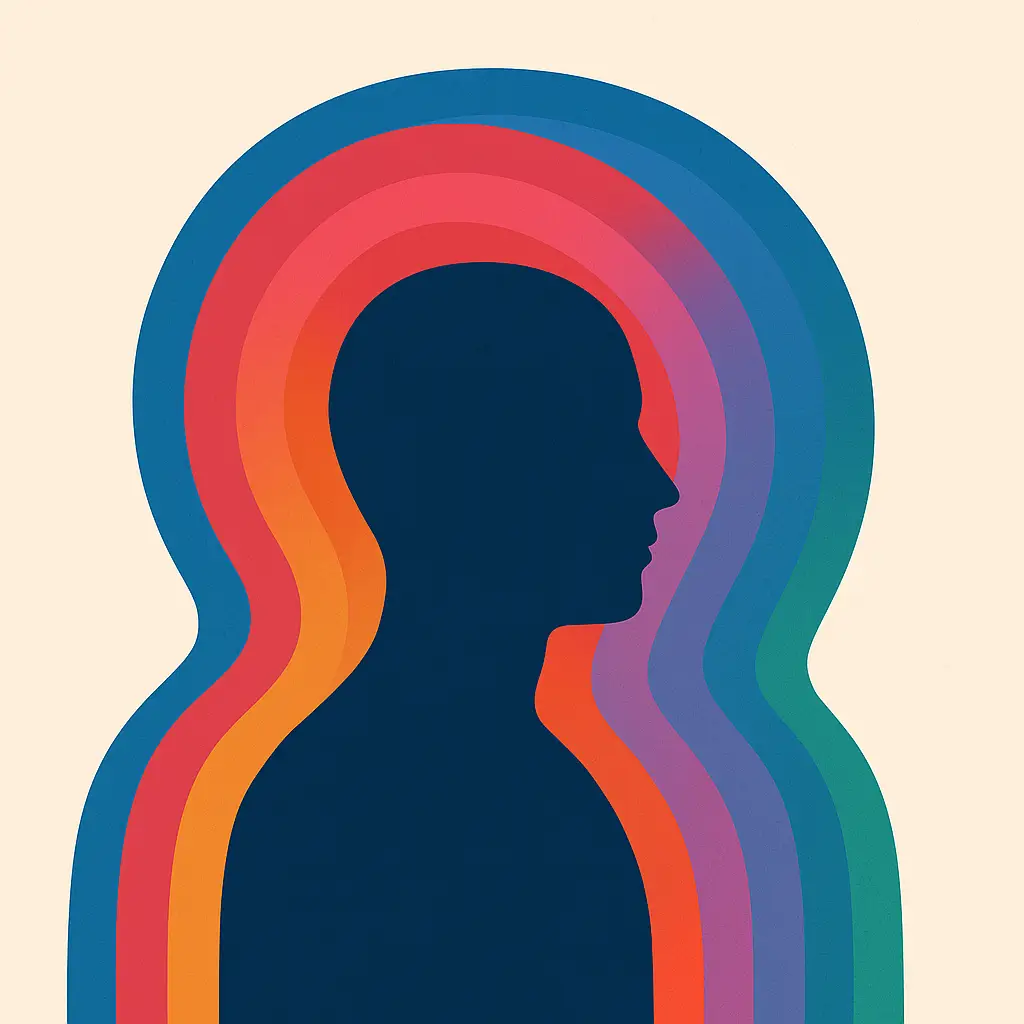What makes you you? Why are some people naturally outgoing while others are more reserved and thoughtful? The answer lies in personality—the unique set of traits, emotions, and behaviors that define how we interact with the world.
In psychology, personality is one of the most fascinating areas of study. It influences our relationships, career success, decision-making, and even mental health. Understanding personality helps us not only know ourselves better but also connect more effectively with others.
This guide explores:
- What personality is
- Major personality theories
- Personality types and classifications
- Factors influencing personality development
- Real-life importance of personality
- Whether personality can change over time
What Is Personality?
The word personality comes from the Latin term persona, meaning “mask.” In ancient theater, masks represented characters. Today, personality refers to consistent patterns of thinking, feeling, and behaving that make an individual unique.
Psychologists define personality as a relatively stable yet adaptable set of characteristics that guide how people respond to different situations. While shaped early in life, personality continues to evolve with experiences and self-development.
Major Theories of Personality
1. The Big Five Personality Traits (OCEAN Model)
The Big Five is the most widely accepted model in modern psychology. It describes personality across five dimensions:
- Openness – creativity, curiosity, adaptability
- Conscientiousness – discipline, organization, reliability
- Extraversion – sociability, energy, assertiveness
- Agreeableness – empathy, kindness, cooperation
- Neuroticism – emotional sensitivity, mood instability
Unlike rigid categories, the Big Five places individuals on a spectrum, making it highly reliable in predicting workplace success, relationships, and well-being.
2. Freud’s Psychoanalytic Theory
Sigmund Freud believed personality is shaped by unconscious drives and childhood experiences. His model included:
- Id – basic instincts and desires
- Ego – rational balance between desires and reality
- Superego – moral standards shaped by society
Although many of Freud’s ideas lack modern scientific support, his theory emphasized the deep influence of early life and unconscious processes on personality.
3. Humanistic Approach (Maslow & Rogers)
The humanistic perspective highlights personal growth and self-actualization.
- Maslow’s hierarchy of needs suggests personality develops as individuals progress from basic needs toward achieving their highest potential.
- Carl Rogers emphasized self-concept, empathy, and unconditional positive regard in shaping healthy personalities.
This theory emphasizes optimism, resilience, and personal responsibility.
4. Social-Cognitive Theory (Bandura)
Albert Bandura explained personality as a result of interaction between behavior, thoughts, and environment.
- His concept of reciprocal determinism shows how people and their surroundings influence each other.
- His Bobo doll experiment proved how children imitate observed behaviors, highlighting the role of role models in personality development.
Factors That Shape Personality
Personality develops through a blend of biological, social, and environmental influences:
- Genetics – Twin studies suggest 40–60% of traits are inherited.
- Family Environment – Parenting style, values, and culture leave a lasting impact.
- Life Experiences – Trauma, achievements, and failures reshape outlook.
- Biological Factors – Brain chemistry and hormonal balance influence temperament.
- Society & Culture – Social norms, traditions, and economic conditions affect personality expression.
Personality Types and Classifications
Introversion vs. Extraversion
- Introverts enjoy solitude and deep thinking.
- Extraverts thrive in social interactions and group activities.
Type A vs. Type B
- Type A: competitive, ambitious, time-driven, stress-prone.
- Type B: relaxed, patient, easygoing.
Myers-Briggs Type Indicator (MBTI)
The MBTI identifies 16 personality types based on preferences (e.g., introversion vs. extraversion, thinking vs. feeling). While popular in workplaces and personal development, it is less scientifically reliable compared to the Big Five.
Why Personality Matters in Real Life
- Career Growth
- Conscientious people succeed in structured, detail-oriented jobs.
- Extraverts excel in leadership, sales, and communication roles.
- Relationships
- Personality shapes communication, empathy, and conflict resolution.
- Understanding differences improves both personal and professional bonds.
- Mental Health
- Resilience and optimism protect against stress.
- High neuroticism increases vulnerability to anxiety and depression.
- Personal Growth
- Knowing your strengths and weaknesses helps set realistic goals.
- Encourages continuous self-improvement.
Can Personality Change Over Time?
Yes—though relatively stable, personality is not fixed. Research shows that people often become more responsible, emotionally stable, and agreeable with age.
Ways to foster personality development include:
- Practicing self-awareness
- Building emotional intelligence
- Exploring new experiences
- Maintaining a healthy lifestyle (sleep, exercise, mindfulness)
Applications of Personality Research
- Education – Teachers adapt methods to suit students’ personalities.
- Human Resources – Companies use personality tests for hiring and leadership training.
- Healthcare – Doctors consider personality when planning treatments.
- Counseling – Psychologists help clients understand personality patterns for growth.
Challenges in Studying Personality
- Measurement issues: Personality tests may be biased.
- Contextual variation: Behavior changes across situations.
- Cultural differences: Personality expressions vary globally.
Personality assessments should be seen as guides, not absolute labels.
Conclusion
Personality is the essence of individuality, shaped by a complex mix of genetics, environment, and experiences. From the Big Five traits to Freud’s psychoanalysis, Maslow’s humanistic theory, and Bandura’s social-cognitive perspective, psychology offers many ways to understand personality.
Though relatively stable, personality can evolve with conscious self-improvement, emotional intelligence, and resilience. By studying personality, we not only understand ourselves better but also appreciate the diversity of human nature.
Key Takeaways
- Personality reflects consistent thought, emotional, and behavioral patterns.
- The Big Five is the most scientifically validated framework.
- Genetics, environment, and culture all shape personality.
- Personality impacts career, relationships, and mental well-being.
- It is stable but can change gradually with effort and self-awareness.
FAQs on Personality
1. What is personality in simple words?
Personality is what makes each person unique—it’s the way you think, feel, and behave in different situations.
2. What are the Big Five personality traits?
The Big Five include Openness, Conscientiousness, Extraversion, Agreeableness, and Neuroticism (OCEAN).
3. Can personality really change?
Yes. While core traits are stable, personality can gradually change through life experiences, maturity, and personal effort.
4. How is personality tested?
Through self-report questionnaires (Big Five Inventory, MBTI) and behavioral assessments.
5. Why does personality matter?
It affects career success, relationships, communication, and mental health—making it crucial for both personal and professional life.
Sources and Necessary Links –
Big Five Personality Traits (Verywell Mind):
https://www.verywellmind.com/the-big-five-personality-dimensions-2795422
Myers-Briggs Type Indicator (Official Site):
https://www.myersbriggs.org/my-mbti-personality-type/mbti-basics/
Read our blog on a daily routine guide – https://newsarmour.com/how-to-build-the-perfect-daily-routine-science-backed-guide/






